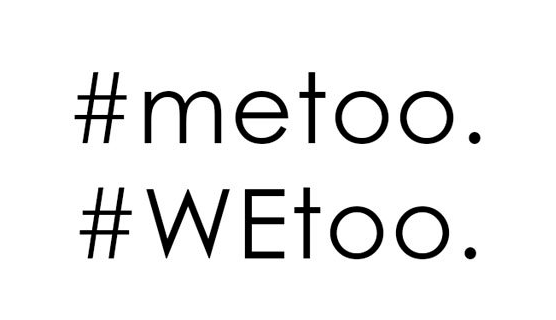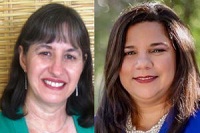‘#Wetoo’ in the Latino evangelical community
It is time for us to say #wetoo if we are praying for a profound awakening in our churches, if we are willing our churches to have a renewed testimony in our society. We mustn’t fear.
14 DECEMBER 2017 · 12:04 CET

In the past weeks, several and important reactions against prominent men concerning the condemnation of sexual abuse have been voiced.
Time magazine chose the many women who decided to say #metoo, as personality of the year, including those who previously didn’t have the courage to say it publicly. Then, Democrat Senator Al Franken renounced his charge because of the accusations made on his person. The only actions in the opposite way were that of President Donald Trump and that of many white evangelicals favouring the candidature of Roy Moore as Senator for Alabama.

Both of them know that there is are many cases of sexual abuse in the Latin communities of the USA, but social pressures makes it difficult to have the courage to publicly acknowledge that they have been victims. As they say:
As in many cases, victims are afraid of speaking publicly about their abuse. They may be afraid of the aggressor. They may be afraid of a judging community that to certain extent is shame based, and where shame is used to control its members. They may be afraid of being blamed for the abuse. They may be afraid of adding more suffering to their current suffering or being re-victimized.
This remind us that silence is not an indication that there are no sexual abuses. Silence also makes it impossible to erradicate the abuse.
If we keep on with that silent answer we will worsen the situation. This is why they encourage us to react in the following way: If the victims cannot voice their #metoo for the moment, we Latin leaders, are willing to say #wetoo in the place of our community and an in the name of the victims that cannot have the freedom to speak for the moment. Let’s say #wetoo to open a door for a future day when the victims have the courage to say #wetoo.
As I mentioned, the problem of sexual abuse is also present in the midst of our Latin evangelical churches. We know that pastors and leaders have also been abusers and that their victims never had the freedom to say #metoo. They were silenced in order to “protect the ministry” or “the man of God”. And these victims had to suffer in silence. In their name we say #wetoo.
I’d like to suggest that this historical moment could be used by the Holy Spirit to bring a profound social change. Instead of fearing what might be “discovered” if the Latin evangelical victims begin to say #metoo, I’d like to suggest that this is a time for a deep liberation. If we stop covering up this sin, we’ll open the doors for a fresh and deep visitation of the Holy Spirit.
For that reason I join Nora and Zorícelis to say #wetoo. I say it as the confession for the sin of our Latin evangelical community. I say it in the stead of the victims. But I say it also in hope, knowing that if “we confess our sins, He is faithful and just to forgive us our sins and to clean us from all unrighteousness”. And I say #wetoo knowing that the Lord brings about an awakening when there is confession and repentance.
It is time for us to say #wetoo if we are praying for a profound awakening in our churches, if we are willing our churches to have a renewed testimony in our society. We mustn’t fear. Let us receive this historical moment as a special blessing from the Lord, a moment that could bring profound changes in our churches and in our society. Give us that blessing, Lord!
Juan Francisco Martinez, Professor of Hispanic studies and pastoral leadership at Fuller Theological Seminary, USA.
Published in: Evangelical Focus - Features - ‘#Wetoo’ in the Latino evangelical community
